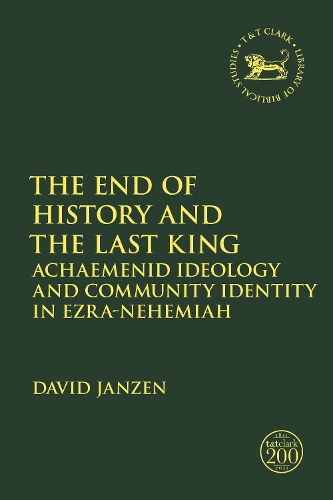
The End of History and the Last King: Achaemenid Ideology and Community Identity in Ezra-Nehemiah
(Hardback)
Available Formats
Publishing Details
The End of History and the Last King: Achaemenid Ideology and Community Identity in Ezra-Nehemiah
By (Author) Dr David Janzen
Bloomsbury Publishing PLC
T.& T.Clark Ltd
11th February 2021
United Kingdom
Classifications
Tertiary Education
Non Fiction
Criticism and exegesis of sacred texts
Ancient religions and Mythologies
Old Testaments
222.706
Physical Properties
Hardback
288
Width 155mm, Height 234mm, Spine 20mm
580g
Description
This book examines community identity in the post-exilic temple community in Ezra-Nehemiah, and explores the possible influences that the Achaemenids, the ruling Persian dynasty, might have had on its construction. In the book, David Janzen reads Ezra-Nehemiah in dialogue with the Achaemenids Old Persian inscriptions, as well as with other media the dynasty used, such as reliefs, seals, coins, architecture, and imperial parks. In addition, he discusses the cultural and religious background of Achaemenid thought, especially its intersections with Zoroastrian beliefs. Ezra-Nehemiah, Janzen argues, accepts Achaemenid claims for the necessity and beneficence of their hegemony. The result is that Ezra-Nehemiah, like the imperial ideology it mimics, claims that divine and royal wills are entirely aligned. Ezra-Nehemiah reflects the Achaemenid assertion that the peoples they have colonized are incapable of living in peace and happiness without the Persian rule that God established to benefit humanity, and that the dynasty rewards the peoples who do what they desire, since that reflects divine desire. The final chapter of the book argues that Ezra-Nehemiah was produced by an elite group within the Persian-period temple assembly, and shows that Ezra-Nehemiahs pro-Achaemenid worldview was not widely accepted within that community.
Author Bio
David Janzen is Professor of Hebrew Bible/Old Testament, Durham University, UK.
